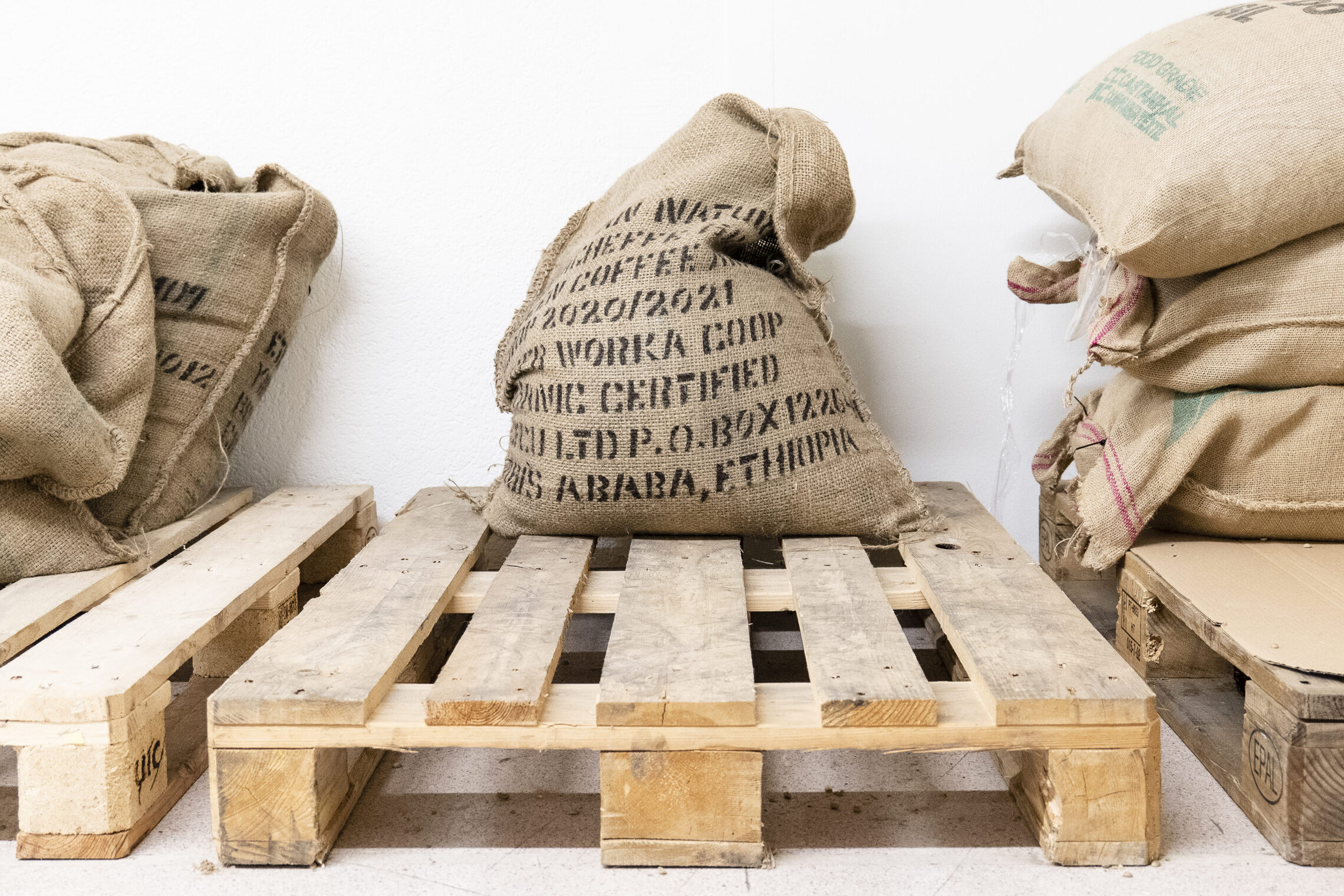
A lot has changed since we bought our first green coffee. Yet, we still follow the same values and principles we had defined back then. How do we purchase coffee and what are the most important things we consider when doing so?
We have purchased coffee from various producers and traders in the past. Today, we source the majority of the coffees we buy with the help of a few partners that have proven to be ideal for us to ensure a reasonable, sustainable and transparent trade.
Direct Trade
What exactly is «direct trade»? The term is used very frequently in connection with coffee trade. It is often used with good intentions, yet it's creating a lot of confusion. The term mostly wants to tell the consumers something along these lines: When coffee is bought directly from the producers, all intermediary parties are not needed. Since there are no intermediaries/middlemen, they don't receive money and the producers should receive that money instead and will ideally even be able to make a decent living.
In reality, however, the term is not only used when coffee is sold and transported directly from a producer to a roaster, but more often than not, it's still used even if several other companies such as cooperatives, exporters, importers, traders or others are involved in the purchase. These intermediary parties don't necessarily have to be bad and it can often make more sense to work with them than to really do everything on one's own. Yet, the term direct trade is rather misleading in these cases. It is not protected nor properly defined. Therefore, it can be used by roasteries in whatever way they choose and it's obviously also being misused to increase sales.
We have moved away from using the term for our coffees. A completely direct trade with no other parties involved does usually not make any sense for us.
An Alternative
Buying green coffee is somewhat complicated. The coffee has to be shipped around half the world in some cases to reach, in our case, Switzerland. Most coffee roasters as well as coffee producers are not experts in international sea freight, exports from various countries or customs regulations. Sure, we might have learned a lot about it in the past, yet these things are not our job. Therefore, it makes sense that this part of the supply chain is done by experts who work in this field every day and know all about it.
Although we do not accept a long chain of unnecessary intermediaries when buying coffee, we don't pursue a completely direct trade. Instead, we want to know everything about every step of the trade – including who receives how much along the way. This means that we know exactly how much money is paid to the producers for their coffee, even if we don't transfer the money directly to their accounts. This relies on three pillars:
Transparency
Instead of using the term direct trade, we put an emphasis on transparency. Another popular word that can be seen more and more in marketing a fair trade to the consumers. What does it mean?
Not only the coffee supply chain but within the global economy transparency is something, that is being requested frequently. Companies have been reluctant to disclose valuable and sensitive information for example from their competitors. How we deal with sensitive information is one of the most complex issues of our time. In general, we see a trend towards more transparency. That's good and important. In our opinion, we need much more transparency. We need to see, know, hear and understand things in the area we work in. Yes, in certain circumstances it is crucial to keep and protect sensitive information. In other situations, though, it is just as important to make certain information available to business partners or to the public. Consumers pay more and more attention to what they buy. They steer the market and the supply chains with their buying behavior to a certain degree. However, if a piece of information – for example the price a coffee farm is being paid for their coffee – is not available for any of the products in the shelf, consumers are not able to force the market to adjust. In that case, all the involved parties have to take responsibility. It is not only up to the consumers to generate the necessary pressure for companies to do «the right thing».
Only when requesting transparency, we can see where the problems are hiding. Obviously, it is not possible to double-check every piece of information one receives and even if everything is fully transparent, information can still be wrong/fraud. It is therefore crucial to explore new paths. Technology such as blockchain can help to trace and track products, unified standards can be created, the law could request more transparency and compliance from companies, etc.
As a small roastery, we can try to learn as much as possible about the coffee we buy as well as communicate openly towards our customers. If we notice any problems, e.g. someone is not paid enough or not treated the way they should be, we have to speak to the producer and/or importer about it and, if necessary, cancel the trading relationship. We believe that in the coming years transparency in supply chains will be an even greater topic in public discussion due to the current economic, political and climate situation.
